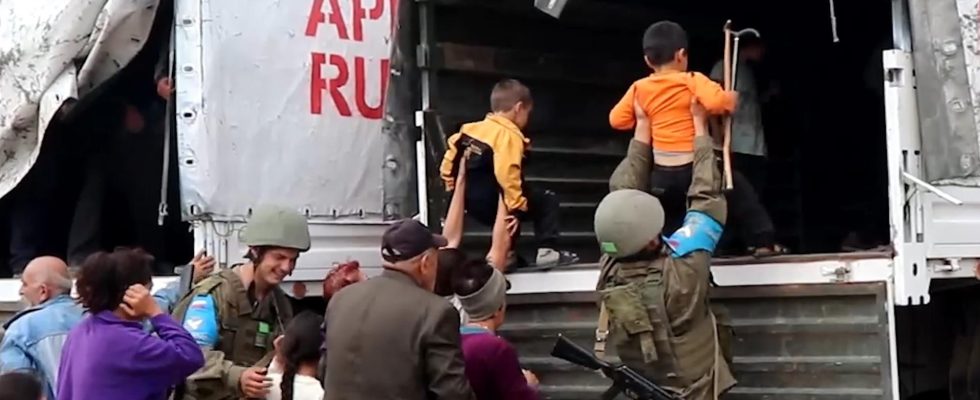If a few cars manage to flee Nagorno-Karabakh to reach Armenia, tens of thousands of Armenians remain, in this enclave, at the mercy of the Azerbaijani regime, whose abuses are feared. From Emmanuel Macron to Olaf Scholz, including the President of the European Parliament Charles Michel, all say they are worried about the risks of “ethnic cleansing” of this community that has come under the control of Baku.
And already, fears are focused on Armenia itself, which, in turn, could come under fire from Azerbaijan. A “war of territorial aggression is possible, even a war of extermination,” estimates historian Vincent Duclert.
Who could stop him? Not many people. Abandoned by Russia, its only regional security guarantor, “Armenia is difficult to access and very landlocked,” explains Jean-Luc Théus, former defense attaché in the Caucasus. Furthermore, this former Soviet republic is trapped by three autocracies (Russia, Turkey, Azerbaijan), which form a tacit alliance. And Yerevan’s commercial and military ties with Moscow, although questioned by Prime Minister Nikol Pashinian, hamper any Western support.
Especially since the Europeans have a (big) thorn in their side. To replace Russian gas imports, the Twenty-Seven signed a gas agreement with Azerbaijan in February 2023. As a result, the EU, which had already increased its deliveries of Azerbaijani gas by 30% between 2021 and 2022, became the first client of this dictatorship. In Brussels, it will be difficult to go further than incantations.
